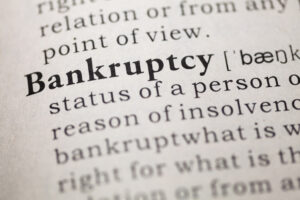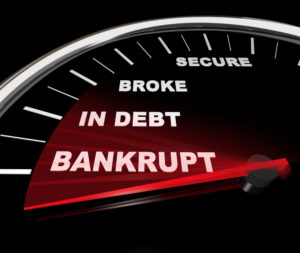 Qualifying for Bankruptcy and Getting the Right Support
Qualifying for Bankruptcy and Getting the Right Support
If you’re struggling with overwhelming debt, you might be wondering whether bankruptcy could solve the problem. One of the first questions people often ask at this stage is, “Will I qualify for bankruptcy?”
As a bankruptcy lawyer, I help my clients understand the requirements and types of bankruptcy available so they can make an informed decision. Let’s explore the qualifications for bankruptcy and how to know if it’s the right option for you.
Chapter 7 Bankruptcy
There are two main types of personal bankruptcy: Chapter 7 and Chapter 13. Each type has different requirements, and knowing how they work can help point you in the right direction.
Chapter 7, sometimes called “liquidation bankruptcy,” is the most common form of personal bankruptcy. It allows you to wipe out most of your unsecured debts, like credit card debt and medical bills, and get a fresh start.
The Means Test
To qualify for Chapter 7, you have to pass what’s called the “means test.” This test is meant to make sure the people who use Chapter 7 truly need it.
The means test compares your income to the median income in your state. If your income is below the median, you automatically qualify. If it’s higher, you may still qualify if your disposable income—after expenses—is low enough.
Our Memphis bankruptcy firm offers a free consultation, and one reason is because so many people don’t know about the means test or whether they qualify. At your free appointment, we look at your finances and let you know where you fall within this test.
Recent Bankruptcy Filings
If you’ve filed for Chapter 7 bankruptcy in the last eight years or Chapter 13 in the last six years, you may need to wait to file Chapter 7 again. That doesn’t mean you’re out of options, but it’s something to keep in mind.
If you’re worried about the timing of your bankruptcy, our team is happy to chat with you about what options you might have.
Ability to Repay Debt
Sometimes you might think you need a Chapter 7, but you actually have enough income for a Chapter 13. If the means test shows you can pay back a portion of your debts, you may find Chapter 13 could be a better fit.
Fortunately, Chapter 13 comes with its own advantages.
 Chapter 13 Bankruptcy
Chapter 13 Bankruptcy
Often referred to as a “reorganization bankruptcy,” Chapter 13 bankruptcy allows you to create a repayment plan to pay off your debts over 3-5 years.
Chapter 13 is a great option if you have a steady income and want to keep assets like your home or car while catching up on missed payments.
Income Requirement
Unlike Chapter 7, there’s no means test for Chapter 13. Instead, you need a reliable income to make your monthly payments under a court-approved plan.
But don’t worry: you won’t lose all your income as a result. The courts, along with you and your attorney, set up the plan according to your ability to repay while still covering your day-to-day expenses.
Debt Limits
To qualify for Chapter 13, you can’t have more than a certain amount of debt. The numbers change periodically and are different for your secured debts (like mortgages and car loans) and unsecured debts (like credit card debt). But the limits are usually far higher than most people need to worry about.
A lot of people might assume these are hard and fast numbers, but you should always speak with an attorney if you’re concerned about qualifying. Some debts might not have to be included, and you may have other options depending on your marital situation, savings, and more.
Past Bankruptcy Filings
Just like with Chapter 7, you will have a waiting period if you’ve filed bankruptcy before. But that doesn’t mean you should wait to get a consultation. Our attorneys can help you look at your debt and assets and figure out your options, whether or not that includes bankruptcy.
 What to Consider Before Filing
What to Consider Before Filing
When you come into our office for your free consultation, we focus first on your goals and concerns. We look at a variety of factors to help you decide whether to file bankruptcy, and if so, what kind.
Type of Debt
Not all debts are treated equally in bankruptcy. Usually you can discharge, or wipe out, unsecured debts like credit cards and medical bills.
Some other debts like student loans, child support, alimony, and certain tax debts may not be included in a bankruptcy. However, we often help our clients deal with the qualifying debts so the others become much easier to pay down.
Your Assets
One of the biggest concerns people have about filing for bankruptcy is whether they’ll lose their assets. Fortunately, Chapter 13 allows you to keep all your assets, including your car and home, as long as you stick to the repayment plan. In fact, it actually protects your assets even further by stopping foreclosure and repossession.
Chapter 7 works differently. In some cases you can file Chapter 7 and still protect your assets through exemptions, but you’ll want to be very careful with this and take the advice of your lawyer.
Your Financial Goals
We also can help you think about what you want to achieve with bankruptcy. Chapter 7 is typically faster, taking about 3-4 months to complete, and can eliminate most unsecured debts.
Chapter 13 takes longer but can help you catch up on missed mortgage payments or car loans, making it a good choice if you want to keep these assets.
Whatever you decide, it’s our job to make sure you understand your options and what it means to file. And we’re happy to answer any questions as you have them.
 Determining If You Qualify for Bankruptcy
Determining If You Qualify for Bankruptcy
Never assume whether you qualify for bankruptcy based off an internet search. Instead, work with a respected and qualified bankruptcy lawyer who can help you know all your options under the law.
At our firm, when you have your free initial consultation, we look mainly at your income, debts, and assets.
To help in that process, you can gather information about your income over the last six months. This will help us understand whether you may qualify for Chapter 7 or if Chapter 13 might be a better fit.
You can also make a list of all your debts and assets, including your property and vehicles. This will help us make a plan that best protects you.
But even without this, we can still ask questions and help you figure out your next steps.
 Talk to a Bankruptcy Lawyer About Qualifying for Bankruptcy
Talk to a Bankruptcy Lawyer About Qualifying for Bankruptcy
If you’re overwhelmed by debt and unsure if you qualify for bankruptcy, you’re not alone. Many people face similar questions and concerns.
Bankruptcy laws are complex, and everyone’s financial situation is unique. That’s why we never recommend entering the bankruptcy process alone. The risks are too great: you need the help of a caring, respected attorney.
At our Memphis firm, we help you understand whether you qualify for bankruptcy and which option might be best for you, based on your finances and also your goals. We can guide you through the means test, help you calculate your disposable income, and explain any exemptions that might help you.
Contact me today, and let’s take the first step together toward securing your financial future. With the right information and support, you can make a decision that’s best for you and your family.

